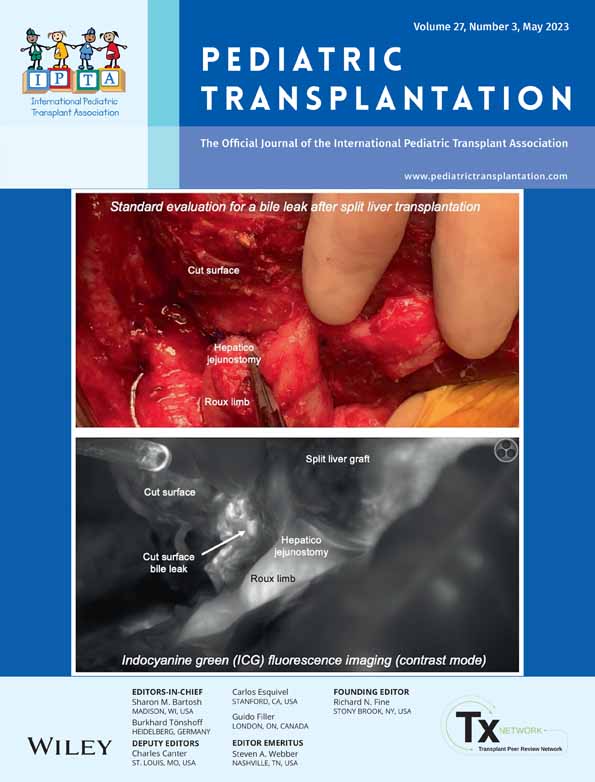Not all durations of preheart transplant mechanical ventilation portend inferior post-transplant survival in children
Abstract
Background
Mechanical ventilation prior to pediatric heart transplantation predicts inferior post-transplant survival, but the impact of ventilation duration on survival is unclear.
Methods
Data from the United Network for Organ Sharing and Pediatric Health Information System were used to identify pediatric (<18 years) heart transplant recipients from 2003 to 2020. Patients ventilated pretransplant were first compared to no ventilation, then ventilation durations were compared across quartiles of ventilation (≤1 week, 8 days–5 weeks, >5 weeks).
Results
At transplant, 11% (511/4506) of patients required ventilation. Ventilated patients were younger, had more congenital heart disease, more urgent listing-status, and greater rates of nephropathy, TPN-dependence, and inotrope and ECMO requirements (p < .001 for all). Post-transplant, previously ventilated patients experienced longer ventilation durations, ICU and hospital stays, and inferior survival (all p < .001). Hospital outcomes and survival worsened with longer pretransplant ventilation. One-year and overall survival were similar between the no-ventilation and ≤1 week groups (p = .703 & p = .433, respectively) but were significantly worse for ventilation durations >1 week (p < .001). On multivariable analysis, ventilation ≤1 week did not predict mortality (HR 0.98 [95% CI 0.85–1.43]), whereas ventilation >1 week did (HR: 1.18 [1.01–1.39]).
Conclusions
Longer pretransplant ventilation portends worse outcomes, although only ventilation >1 week predicts mortality. These findings can inform pretransplant prognostication.
CONFLICTS OF INTEREST
The authors of this manuscript have conflicts of interest to disclose as described by the American Journal of Transplantation. Dr. Morales is a consultant for Abbott, Inc., Azyio, Inc., Berlin Heart, Inc., CorMatrix, Inc., Peca, Inc., Syncardia, Inc., and Xeltis, Inc., and serves as a principal investigator for FDA trials sponsored by Peca, Inc. and Xeltis, Inc. Dr. Chin is a consultant for Azurity Pharmaceuticals, Inc. Dr. Lorts is a consultant for Abbott, Inc., Abiomed, Inc., Berlin Heart, Inc., Medtronic, Inc., and Syncardia, Inc., and has received research funding from Abiomed, Inc. The remaining authors report no financial disclosures.
Open Research
DATA AVAILABILITY STATEMENT
Raw data was generated from the databases of the United Network for Organ Sharing and the Pediatric Health Information System. The data that support the findings are available on request from the corresponding author, JWG. The data are not publicly available due to the presence of protected health information.




